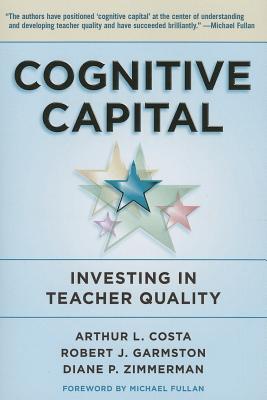Michael Fullan wrote in the Forward:"What is especially powerful about this book is that we are first brought to aprreciate individual cognitive capital that is parlayed into ideas for developing collective capital. there is so much in this compact book about leadership: differences among presenting, facilitating, consulting, and coaching; about mediating that 'liberates the states of mind'; about coaching tools that build trust and rapport; and about how consultants manage relationships.
What I especially like about Cognitive Capital is that the case made by authors directly and indirectly destroys any notions of superficial accountability that about in current policies at state and federal levels. The final chapter of the book, Auditing: Promoting Systems Accountability, contains a practical theory of development in its own right. Cognitive Capital as a "system asset" is portrayed, as are talent optimization, career ladders and other matters that would support fundamental and continuous learning in the professions. Cognitive Capital puts coaching in a new, more profound light as a system resource. To read the first pages of this book is to instantly appreciate it; to read it through is to become a better change agent what ever your role in the education system. " |

